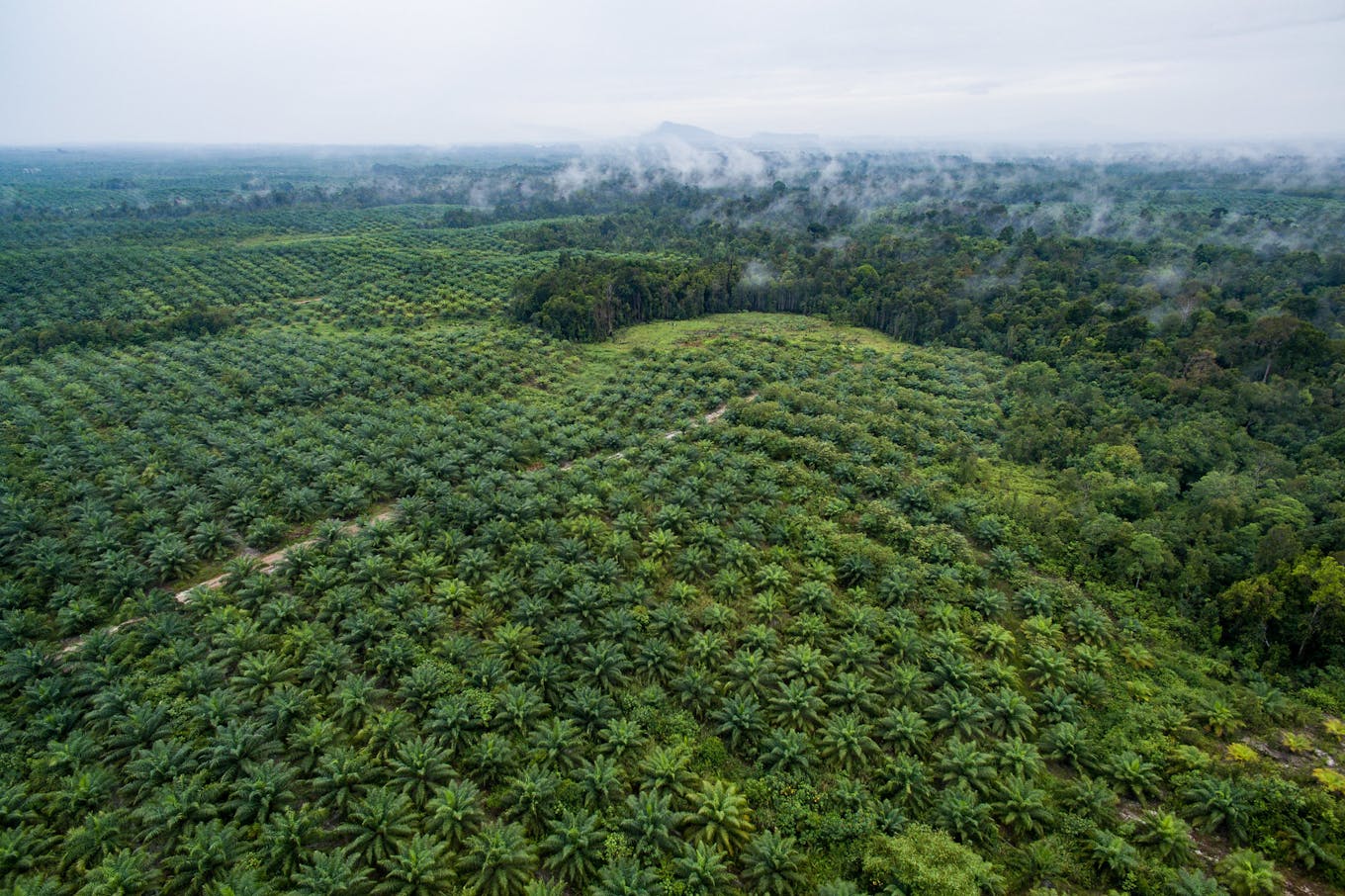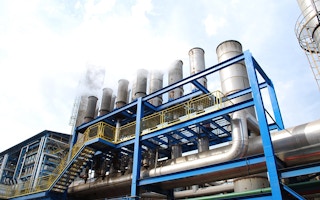Last week, the European Union agreed on an order for all flights departing the bloc to use clean fuels made from waste oils or surplus renewable energy, starting with a 2 per cent blend in 2025 and rising to 70 per cent by 2050.
To continue reading, subscribe to Eco‑Business.
There's something for everyone. We offer a range of subscription plans.
- Access our stories and receive our Insights Weekly newsletter with the free EB Member plan.
- Unlock unlimited access to our content and archive with EB Circle.
- Publish your content with EB Premium.
The move, announced on Wednesday (26 April), represents a bid to jumpstart the sustainable aviation fuels industry, in a region already politically invested in the technology. Nowhere else is there a standing clean jet fuel mandate, though interest in such policies is rising outside of the EU.
In Asia, market players, meanwhile, are starting to grapple with what exactly such mandates – for both aviation and road vehicle fuel mixes – mean for them. For governments, the policy tool is seen as effective to help the nascent transport biofuel sectors achieve economies of scale and get prices down. Industry players, however, warn of complications, such as impacts in trade flows and competitiveness.
“Mandates, or subsidies, to a certain extent, interfere with general economics,” said Vinesh Sinha, founder and chief executive of FatHopes Energy, a Malaysia-based business that collects used cooking oil as biofuel feedstock. Malaysia subsidises road fuels in general, and already requires a 20 per cent blend of biofuels – which would mainly come from palm oil – in its vehicle fuel mix.
“I’m a strong believer that subsidy incentives are not the best driving force for the industry, because we become reliant on them,” he said, speaking at a conference in Singapore organised by commodity analyst Argus.
Sinha added that finding economically feasible uses for waste feedstock and biofuel is more important, pointing to “niche applications” such as in tunnelling and undersea cable-laying operations, where emissions standards are more stringent. Biofuels can burn cleaner than fossil fuels.
Trade barriers
Apart from Malaysia, neighbour Indonesia also has a 35 per cent biodiesel blending requirement for land transport – just raised from 30 per cent in February. The two countries account for the bulk of global palm oil supply.
Amandeep Parmar, biofuels editor at Argus, cautioned that ambitious mandates could affect the international trade flows of the commodity, and drive further protectionism.
“If Asian countries implement their own mandates, then what is preventing them from being more protectionist over their feedstock resources?” Parmar said, pointing to Indonesian export restrictions for palm oil last year.

Palm oil plantations in West Kalimantan, Indonesia. Image: Flickr/ CIFOR.
In Asia, apart from Indonesia’s palm oil, China is seen as a key source of used cooking oil, which can also be turned into biofuels. China currently has a mandate to blend corn-based ethanol, but not cooking oil.
Even without protectionism, the global flow of biofuel feedstock, particularly for palm oil products, is already facing headwinds with the EU, a major buyer, wanting no-deforestation commitments that has irked Malaysia and Indonesia. The EU also wants to cut palm-based material from transport fuels from 2030 onwards.
Levelling prices
Despite warnings of unintended consequences from governments imposing mandates or shaping market demand with generous subsidies, among upstream biofuel players, such policy interventions are still seen as necessary. Prices of transport biofuels remain higher than their fossil counterparts, especially in ultra-refined uses like jet fuel, even as supporters tout its benefits, such as lower lifetime emissions from material reuse.
For example, the International Air Transport Association, in response to the EU’s sustainable jet fuel mandate, has called for incentives for cheaper production and “more flexible rules” around the supply of the clean fuels.
At the Argus conference, Bala Mukundan, president of the Biodiesel Association of India, said: “Government subsidies are killing the open market – it is true, but it also sustains biofuel mandates. Unless there is a mandate, [biofuel uptake] is not happening, because the price is never going to be [level with] petrol or gasoline.”
Industry players also expressed unhappiness that government support for the already-burgeoning electric vehicle industry seems to be more forthcoming. Biofuels can be used in today’s cars with little modification, and is hence more scalable and deserves more attention, they say.
Last month, Shell had announced that it will not go ahead with a planned 550,000 tonne-per-year biofuels plant in Singapore – a move observers say could be due to a lack of strong targets in the region.
Currently, biofuel share in transport stands at 4.3 per cent globally, according to the International Energy Agency. The share for air transport, said to be especially difficult to decarbonise with other technologies, is 0.03 per cent.
Transport accounts for a fifth of global carbon dioxide emissions, according to online publication Our World In Data.
Wary buyers
Meanwhile, some businesses, even without government mandates, have set voluntary biofuel procurement goals, following sustainability trends and non-binding national targets.
“Today, even if there is a small gap [in pricing] between biofuels and conventional fuels, people still opt for [biofuels] because of corporate responsibility and this consciousness that is slowly building,” said FatHopes Energy’s Sinha.
In Asia Pacific, a few airlines, such as Japan Airlines and Australia’s Qantas, have set voluntary 10 per cent blending targets by 2030. But despite opting to do so, these biofuels buyers are resistant to governments setting legal mandates.
Hiroaki Sugimori, who heads decarbonisation efforts at Japan’s All Nippon Airways, said more talk among stakeholders is needed, and that Japan needs better domestic clean fuel production capacity, even as he acknowledges that the airlines’ sustainable aviation fuel target, also of 10 per cent by 2030, is a “really difficult task” without a blending mandate in Japan.
Similar anti-mandate sentiments have been shared recently by the head of major budget carrier AirAsia, while European airlines have been accused by advocacy groups of lobbying privately to weaken mandates.
Mandates could be unpalatable in the prevailing economic doldrum too. New Zealand wanted to mix biofuels into petrol starting April, but scrapped the plan in February, the government saying it would pile costs on consumers.
The environmental credentials of biofuels are far from watertight. Proponents say such fuels can drastically reduce emissions overall – for instance up to 80 per cent in commercial aeroplanes. Critics say the scale-up of plant-based biofuels, which make up the bulk of existing stock today, abets deforestation.
Brussels-based advocacy network Transport & Environment said palm-based biodiesel causes triple the emissions of the fossil type. There are also conflicting narratives on whether corn-based ethanol is climate-friendly.
Biofuel farmers have also been accused of taking land away from agriculture for food, a charge industry players have pushed back on, saying there is enough room for both. Meanwhile, new production methods, such as with cooking oil or even carbon gases as feedstock, face technological and supply chain constraints.
Biofuel demand globally is expected to grow 20 per cent by in the next five years, according to the International Energy Agency.










